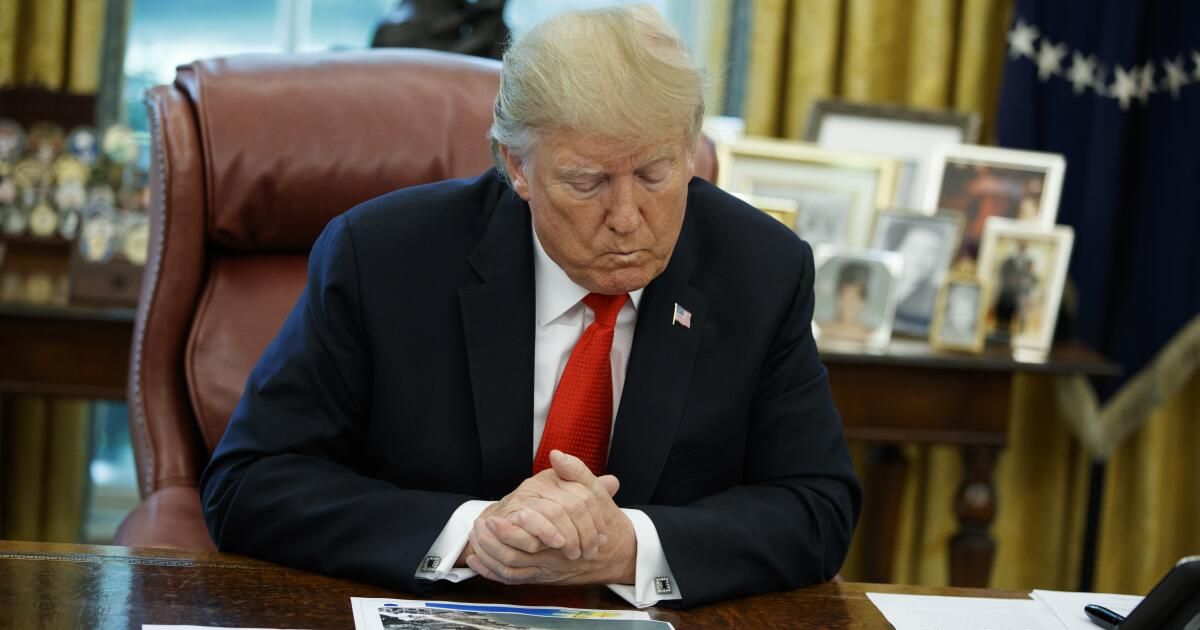During Donald Trump’s first term as president, we witnessed his administration’s efforts to roll back domestic environmental regulations and the US withdrawal from the Paris climate agreement. But few appreciate how much more serious and profound the damage to environmental goals will be if he wins a second term.
The Trump administration was very friendly to oil and gas business interests, unleashing a regulatory dismantling of long-standing restrictions on fossil fuel extraction and consumption. Clearing all references Referring to climate change on the White House and Environmental Protection Agency websites, he reversed an Obama-era ban on new oil and gas drilling in the Arctic National Wildlife Refuge and elsewhere. Trump also rolled back safety rules adopted after the Deepwater Horizon oil spill. (Both measures were later halted or slowed in the courts.)
Trump's first administration also suspended rules limiting air and water pollution. His EPA repealed bans on various pesticideseven when the agency's own research demonstrated its harmfulness. The reduction of air quality regulations between 2016 and 2018 resulted in An increase of 5.5% in fine particulate air pollution, reversing the 25% decline achieved under the Obama administration.
As bad as all this has been for the environment, a second Trump term will see more than just policy changes. Trump loyalists will aim for widespread action. institutional destruction of environmental regulatory capacity, not just suspending Biden-era funding for green infrastructure.
In other words, the goal will not be to simply change a policy here or there, but to fundamentally cripple the ability of environmental regulatory agencies to perform their designated functions to such an extent that if a subsequent administration wanted to impose stricter standards, officials would find it impossible to do so. Recent Supreme Court ruling overturning Chevron USA vs. Natural Resources Defense Council, Which invalidates judicial deference to agency regulatory decisions will only make this easier.
A series of tabletop scenario simulations conducted in May and June by the Brennan Center for Justice, a nonpartisan, pro-democracy think tank based at New York University, made clear that a second Trump administration is likely to aim for the radical destruction of agency power on a number of fronts. The first step will be to revive “Schedule F,” an October 2020 executive order that stripped away protections for public officials perceived as disloyal to the president, and use it to reclassify tens of thousands of those workers as political appointees. The administration will then fire them and replace them with anti-regulators or industry cronies. Agency legal offices and inspectors general, whose role is to prevent the implementation of illegal orders and root out corruption, will likely be among the first targets. The result will be the systematic evisceration of expertise, institutional memory, and guardrails against malfeasance within these agencies.
In addition to targeting environmental agency employees, the Trump administration will also seek… suspend the investigation that provides evidence to support environmental regulation, such as the monitoring of greenhouse gas emissions by the National Oceanic and Atmospheric Administration, which in addition to providing weather forecasts is one of the federal government’s leading climate change research entities. If Trump cannot convince Congress to defund certain agencies, he can order them moved to remote corners of the country to force their employees to resign. Destroying the agencies will ensure that if Trump is ever replaced by a more environmentally friendly president, the new administration will be unable to reimpose sensible environmental regulation because the administrative capacity to do so will no longer exist.
The courts, now packed with Trump appointees, are unlikely to be able to protect themselves from actions like those taken during his first term, when judges were mostly appointed by Obama and Clinton. Litigation is expected to have very limited ability to do anything other than slow down a second Trump administration, which is likely to be far more focused and strategic than the first (as one person who participated in the Brennan Center simulations put it, “They’re going to know where the door handles are this time”).
Finally, a second Trump administration will almost certainly backtrack on international efforts that are essential to preserving biodiversity, mitigating greenhouse gas emissions, reducing ocean plastics, and preventing space debris. Even Trump’s ambition to establish trade barriers to protect American industrialists from foreign competition is likely to be destructive, because it will slow the global uptake of new technologies capable of addressing environmental problems, such as solar panels and electric vehicles, if they are produced in China or elsewhere.
For Trump’s “America First” supporters, this may seem like a feature rather than a flaw, but four years of institutional vandalism would end American leadership on the world stage. Credibility built since World War I would vanish as the world’s largest economy would ignore the world’s biggest problems.
Nils Gilman is Executive Vice President of the Berggruen Institute.












